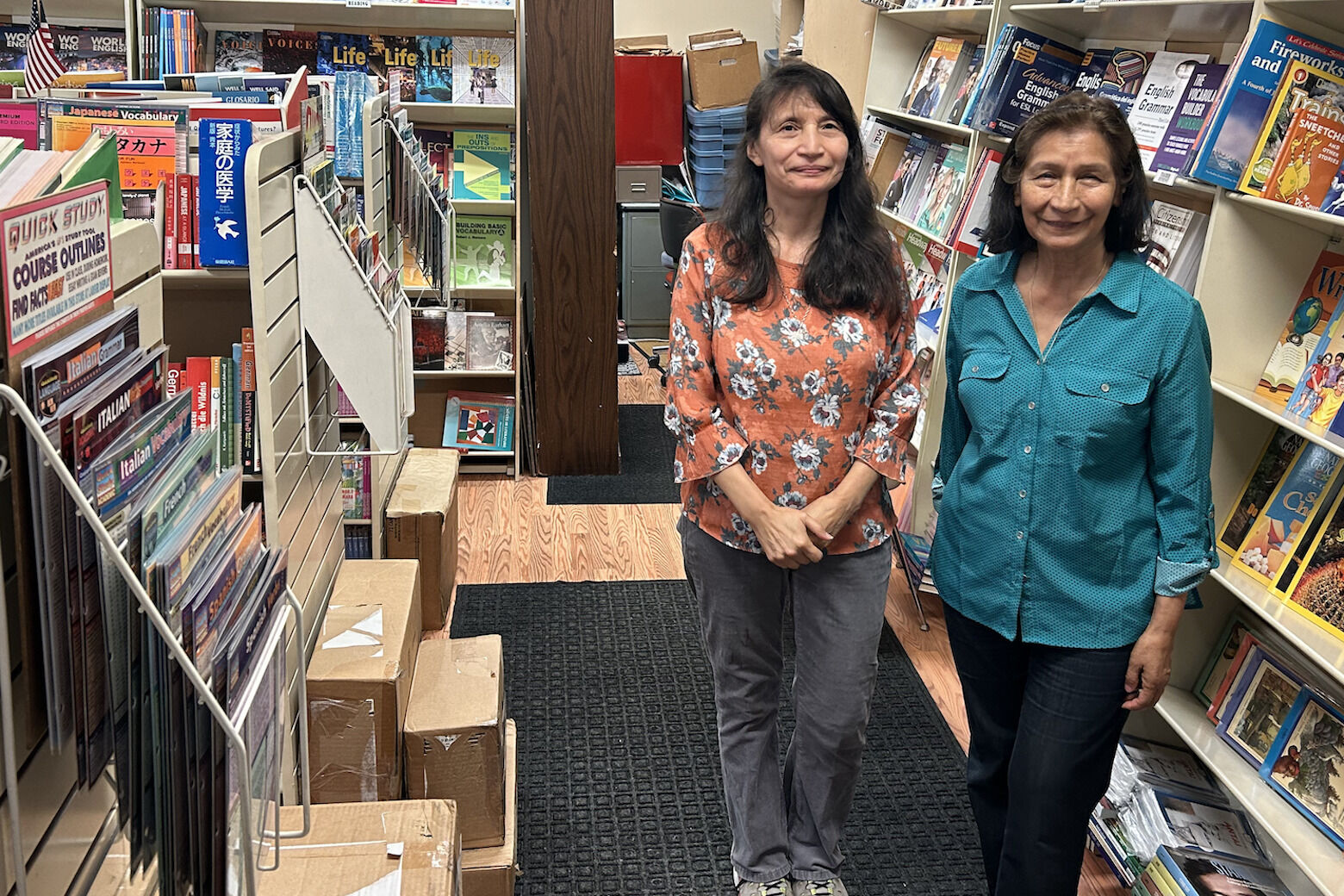
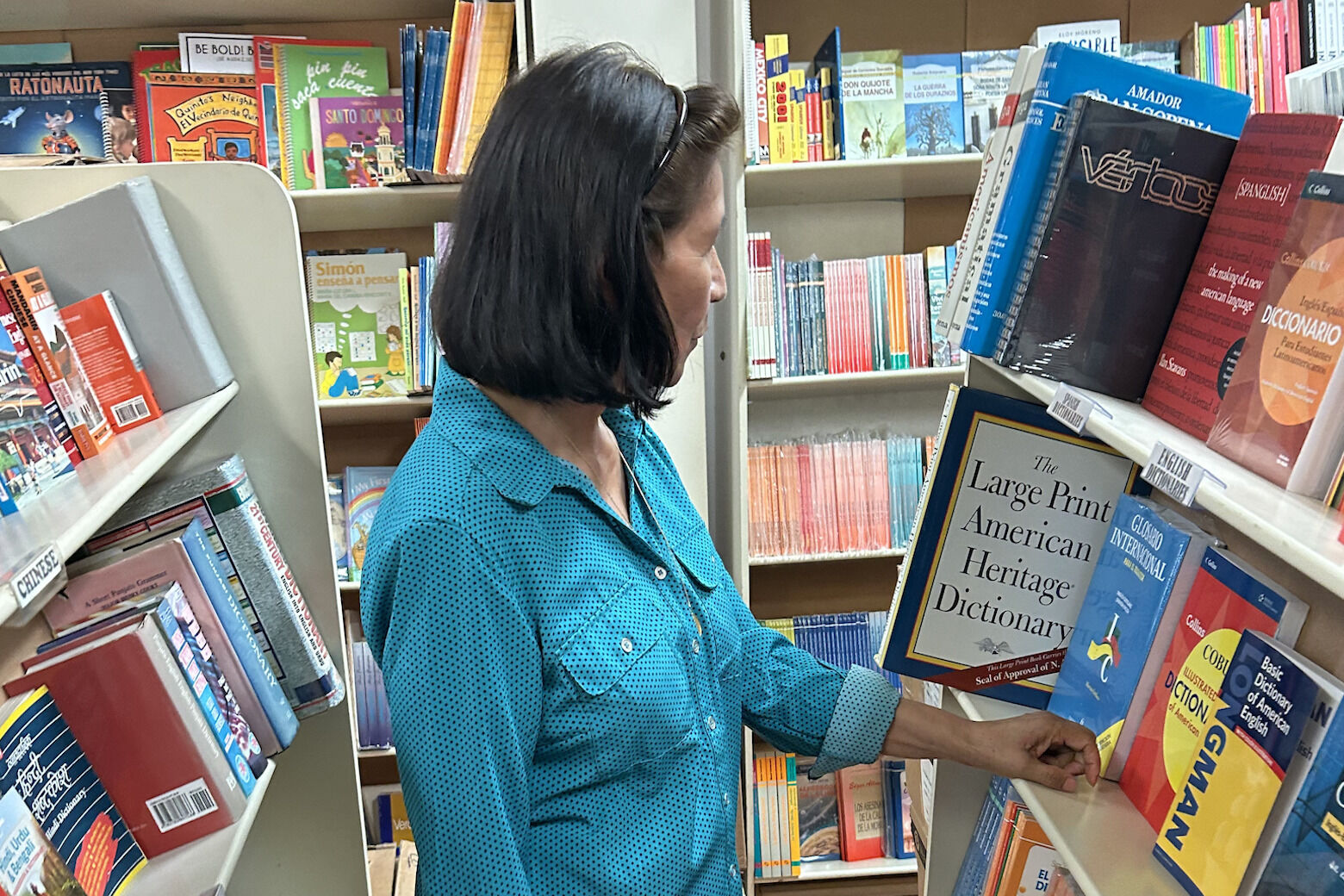
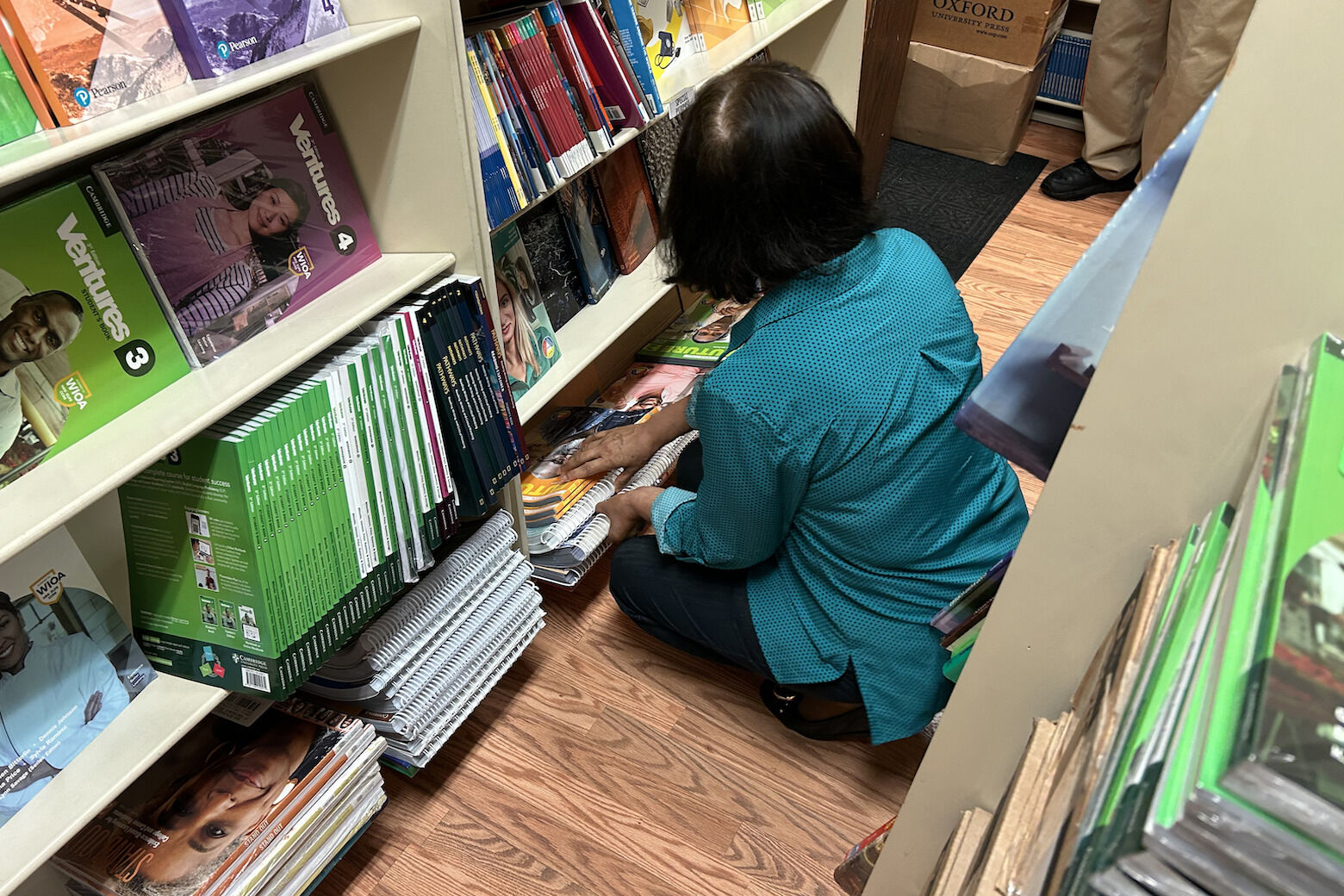
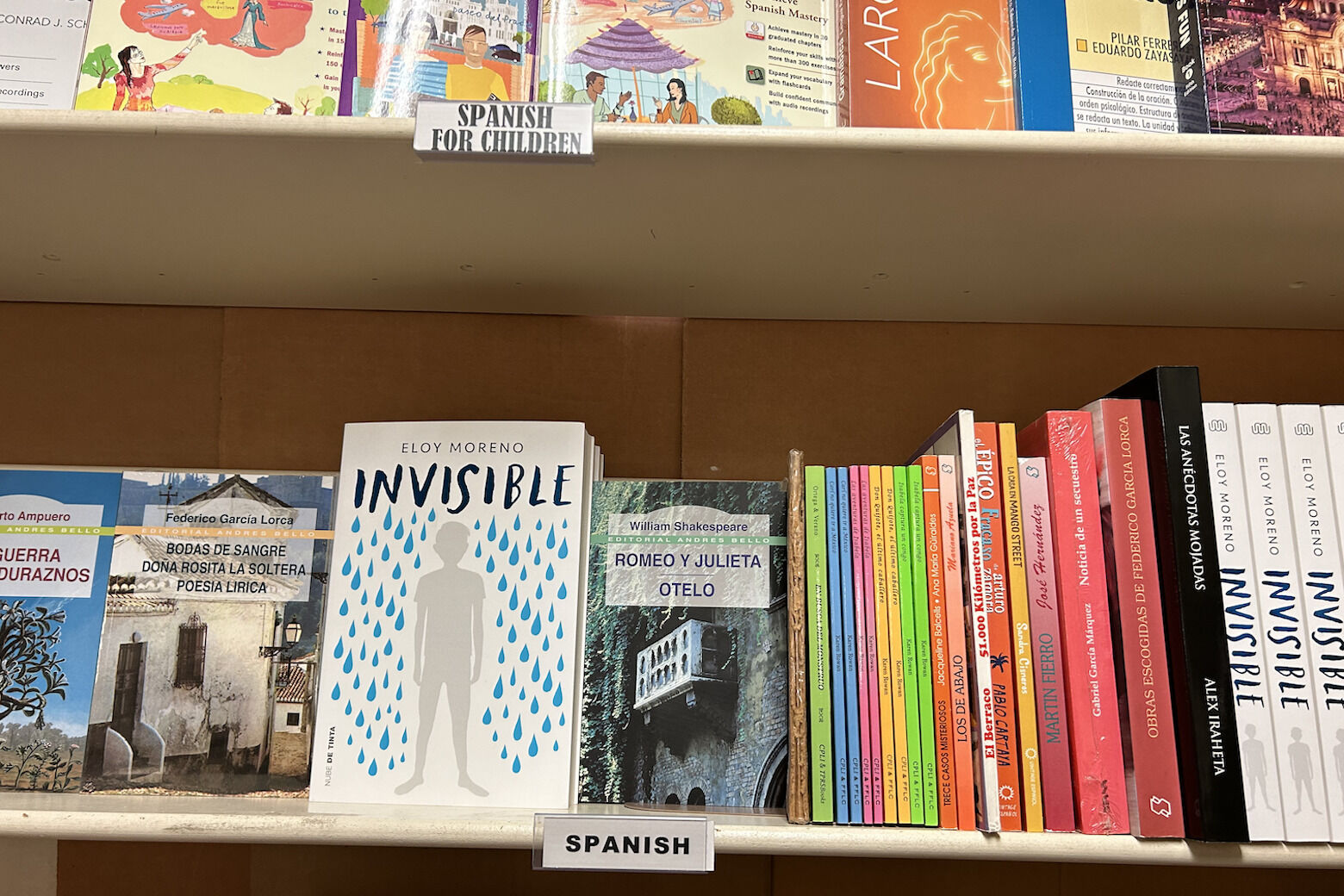
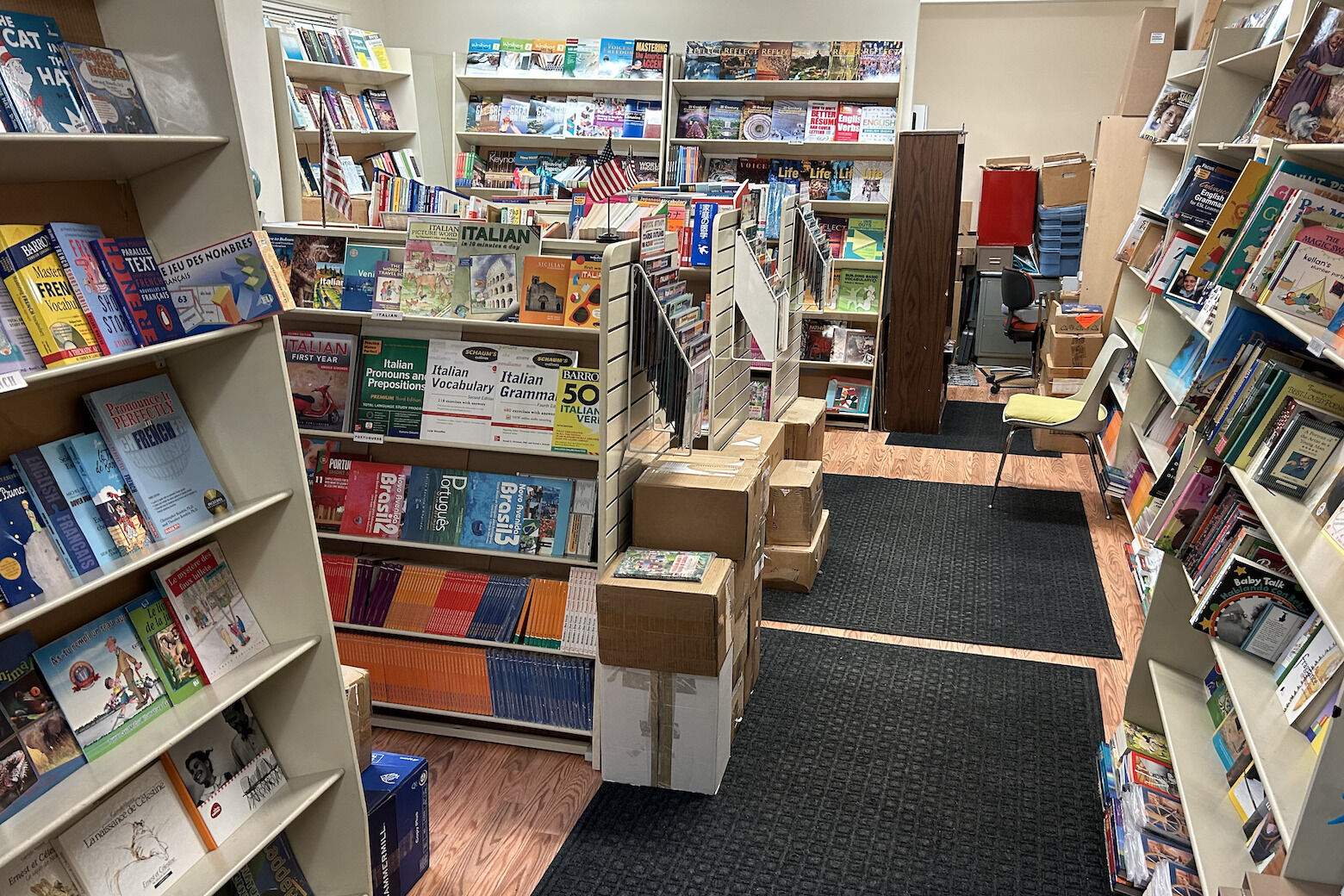
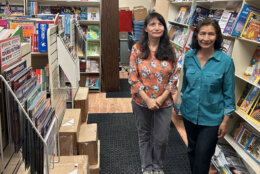
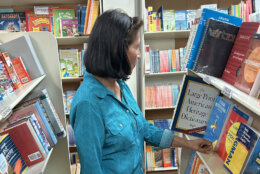
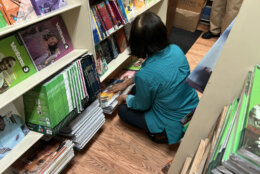
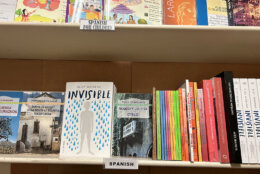

WTOP celebrates National Hispanic Heritage Month this Sept. 15 through Oct. 15, with stories spotlighting the contributions, culture and accomplishments of Hispanic communities across the D.C. region.
When a Vietnamese student was ready to checkout at Tempo Books in Northwest D.C., owner Betulia Sanchez paused.
It wasn’t that she didn’t want to sell him the books, she told the customer. But, the books, which are aimed at helping nonnative English speakers learn the language, were advanced and expensive.
So, Sanchez recommended he only buy a couple of them and come back for the rest when he finished. The student, though, was adamant he wanted to learn the language and was persistent about buying them all.
About a year later, the student returned to the store. He told Sanchez he had finished all of the books, and his English was almost perfect.
“I was so happy to see how a person that really wants to do things, and he really wants to improve, they can do it,” Sanchez said.
Since 1990, the bookstore, now tucked away on the first floor of an apartment building, has strived to help students learn English and avoid the consequences that come with linguistic isolation, when students feel disconnected from their communities because of a language barrier.
Sanchez and her late husband Eugene Lesmez, decided to open the business after observing there wasn’t a place for teachers or students to find books that can help them to improve their English.
The store’s shelves are lined with materials on English vocabulary, grammar and U.S. citizenship. There’s a section dedicated to books on learning Spanish, for English speakers who want to learn the language, and shelves with materials for all types of other languages, too.
Many private schoolteachers frequent the store for materials to support students. But many of the students Sanchez interacts with are adults who are hoping to learn English.
“We help the students with the materials and advise them what to use, what is better for them,” Sanchez said. “And then we encourage them, you want to get a better job? You better learn English.”
Some of the students hope to learn English to improve their job prospects, or so they can understand their bosses. But whoever she’s advising, Sanchez emphasizes the important or embracing the culture just as much as learning the language.
“Sometimes, they get an idea that we’ll continue to do whatever they do in my country, and this is a different country,” Sanchez said. “So we tell the students, you are here, you better start working and learning the culture, and you start being grateful that you are here,” she said.
Usually, there are two types of students who visit the store, Sanchez said. Sometimes, it’s those who want to learn English because they finished school in another country and want to attend a university in the U.S. Oftentimes, those are people who plan to go to college and return to their native countries.
Others, though, are learning the language because their families bring them when they come to the U.S., but they didn’t finish school and might feel lost. Then, a few months later, Sanchez said, she doesn’t hear from some of them again.
Sometimes, that’s because they had difficulty communicating.
“They say they couldn’t make it here,” Sanchez said. “They go back to the country because they say, ‘This is too much. This is too much. I had to learn the language, I had to study, and then I had to work in evening and work in construction.’ And they cannot take it.”
Regardless of who visits the store, Sanchez views her role as more than the leader of a neighborhood book shop. Instead, she wants to make sure students are motivated to be persistent, no matter what obstacles they may face.
“Without the language, you (are) blind,” Sanchez said. “You can hear, but you don’t see.”
Get breaking news and daily headlines delivered to your email inbox by signing up here.
© 2024 WTOP. All Rights Reserved. This website is not intended for users located within the European Economic Area.








